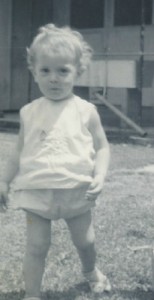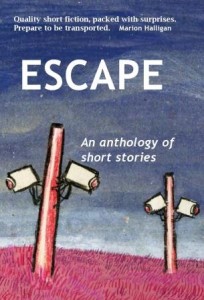 1. Who are the short fiction authors you admire (Australian or otherwise, alive or dead)?
1. Who are the short fiction authors you admire (Australian or otherwise, alive or dead)?
You know, and this is terrible, I tend to remember stories more than individual authors. But some names that I have gone looking for after being wowed at least once include: Maggie Alderson, Teresa Ashby, Steve Beresford, Leanne Hall, Cate Kennedy, Rose Mulready, Flannery O’Connor, Glenys Osborne, Elliott Pearlman and Diana Spelcher.
2. What is the most memorable short story you have read? And why does it stand out for you?
There’ve been a few. One is ‘The Debutante’ by Leonora Carrington, first published in 1936. Woman invites a hyena to take her place at the debutante ball. Hyena behaves with impeccable hyena manners—that is, true to her species. I read it first years ago, and can still recall my amused surprise at how it unfolds.
Another is ‘In Reference to your Recent Communications’ by Tessa Brown, published in Harper’s Magazine in 2005. A very funny story that I showed to several friends and family members if they had ever expressed even the faintest interest in the short story form, and practically insisted: Read this. Now. It stood out for the character of the deluded girlfriend who did not accept her romantic break up. Very clever. The boyfriend is never on the page, and there’s creepiness to this story, just a tad. A hilarious creepiness.
3. What do you like about the short story form?
As a reader I like that it’s short, just the perfect length often, for a 30 minute tram commute, if it’s a longer short story.
I like the variety in anthologies, collections, and in magazine fiction specials.
I like how stories sometimes linger in my memory for years.
I like how stories turn up in surprising places, beyond the literary journal or general magazine. You can find stories in Cosmos, Nature, and even the medical journal The Lancet. Mind you, The Lancet fiction was from a one-off 2007 competition.
I like that most short stories are character studies.
As a writer I like that short story writers are pretty anonymous. No one has ever heard of you. There’s freedom there.
4. How would you describe your own writing?
Someone once said my old stories had their own illogical logic. I’ve always rather liked that.
5. Which of your stories are you most fond of right at this moment and why?
Prototype Number One, because it was a lot of fun to write.
6. Where do the ideas for your stories come from? (Take us through an example)
The stories come from fragments of conversations, fragments of lyrics, and sentence fragments. Aural-snippets. Rhythms.
Having said that, the idea for Prototype Number One originated in a 2005 magazine writing class. Our teacher gave us an in-class exercise: Your house burned down. You need to tell your best friend, boss, and parents by email. Go. For the parents, the thought of a dinged up, disgruntled robotic type of person needing to go back home for repair after fire popped into my mind. But I wasn’t brave enough to go down that route and read it out. Instead I wrote something more standard. Safer. The idea stayed with me though.
This year, at a work conference, I picked up a sample copy of Cosmos magazine, thrilled to read a witty, whimsical short story in it about a man’s computer taking over his life, co-opting his girlfriend, etc. Loved it, though when I read others, I realised that first read story was atypical for the magazine. I saw (or I wanted to see) some broad similarities with that writer’s style and content and mine. So that gave me ‘permission’ and confidence to write a more fanciful story—knowing that some magazines publish this type of fiction.
7.What is your writing process – from idea to publication? (Do you go it alone or are others involved?)
I often bring stories to my critique group. The story published in Escape by Spineless Wonder story, Unrequited was read by them. Just having them as first readers often helps—especially for picking up inconsistencies like having timelines out of whack. Or letting me know if I’m going to try a macabre twist in the tale, then I need to give inklings of that from the beginning. This is true. I remain annoyed with a novel I read a good five years ago that was a delightful domestic comedy until the car crash horror in the final chapters. Man, did I feel cheated.
8. Do you feel the short story form is valued in Australia? What makes you say this?
I think the form is appreciated by some, but not most. Though there seems to be a resurgence of interest over the past two years or so in literary journals, with new publishers. But I also think people not caring for the form is fine. If you don’t like something, you don’t like something. If you come to my place for dinner and you hate pumpkin I won’t force it on you, insisting you should eat it because it’s nutritious. And because I made it special. Just for you.
9. How do you feel about your work being published in non-print forms such as digital and audio?
Great! Especially audio. Years ago I had the radio on for background noise and a play came on that so captivated me I stopped what I was doing and sat down to listen. Abandoned everything and gave it my full attention. If something I wrote ever affected anyone like that I’d be super chuffed.
10. What advice would you like to offer Spineless Wonders?
None. I’m thrilled you’re on the scene.
